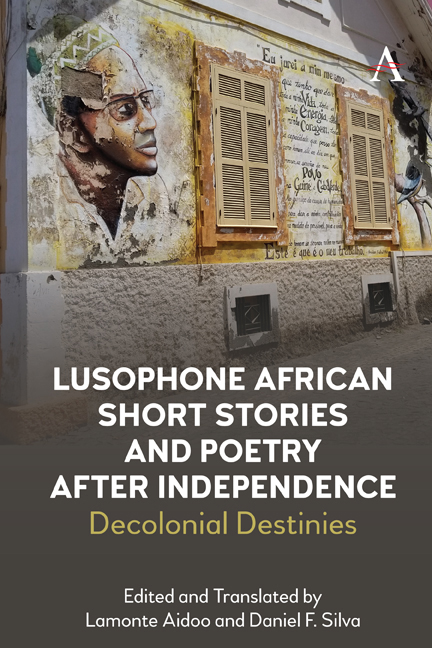Chapter 3 - Ana de Santana
Published online by Cambridge University Press: 23 February 2022
Summary
Introduction
Ana Paula de Santana, also known as Ana Koluki, was born on October 20, 1960, to a mother who served as a public employee and a father who worked as a nurse. Santana moved from her native Gabela in the Kwanza Sul region of Angola to Luanda at the age of two months. Due to her parents’ socio-economic status and line of work during Portuguese colonialism, she shared some social circles with white colonists while also coming face-to-face with the everyday racism that informed such spheres of relative privilege, often being one of the few Black students in her school up until decolonization in 1975. After studying in the School of Economics at Agostinho Neto University in Luanda, she completed her bachelor's degree at the Technical University of Lisbon before earning another degree from the Westminster Business School, and eventually earning a master's degree from the London School of Economics and Political Science in 2000.
During this time, she took part in various forms of activism within Angolan immigrant communities in Europe, especially in Lisbon, on issues pertaining to the ongoing civil war in Angola (1975–2002). She went on to hold various academic titles and roles including that of a research associate at the London School of Economics and Political Science and research director at the Centre for Chinese Studies at the University of Stellenbosch in South Africa. In the meantime, she has become an acclaimed writer in contemporary Angolan literature, a generation known as the “generation of uncertainty” as a result of the nearly 30 years of postindependence civil war, caught in the cross fire of late capitalism's war on socialism, and neo-imperial economic policies dovetailing with the rise of a small wealthy class.
In 1986, she published her first collection of poetry, Sabores, Odores, e Sonho (Flavors, Scents, and Reveries), giving meaning to the everyday traumas of life in the aforementioned moment of postcoloniality and empire. This particular collection, from which three of the poems below have been taken, utilizes, as the title suggests, a language of hallucinatory despair in order to make sense of the violence of the present, paradoxically evoking a host of extrasensory imagery in order communicate the trauma carried out on a very tangible body.
- Type
- Chapter
- Information
- Lusophone African Short Stories and Poetry after IndependenceDecolonial Destinies, pp. 59 - 70Publisher: Anthem PressPrint publication year: 2021

